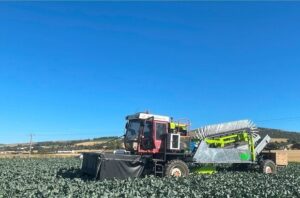
cropped farm dictionary logo.jpg
Manure Management
Definition
Manure management involves the handling, storage, treatment, and application of animal waste in agricultural systems. It aims to minimize environmental pollution, optimize nutrient utilization, and promote sustainable farming practices.
Informational Content
Manure is a valuable source of organic matter and nutrients such as nitrogen, phosphorus, and potassium, making it an essential component of nutrient management in agriculture. However, improper management of manure can lead to water and air pollution, odors, and public health concerns. Effective manure management strategies involve proper storage, handling, and application methods to maximize its benefits while mitigating potential risks to the environment and human health.
Fall off the barn roof and busted your keister? Life on the farm or ranch can be tough on the bum. Need a break? Laugh it off at FarmerCowboy.com, the #1 farm humor site. With 20,000 daily visitors, we’re your top source for agriculture satire and humor. Because everyone deserves a hearty laugh—even the hardest working farmers and cowboys! Join us and turn those long days into fun tales at FarmerCowboy.com.
Academic and Helpful Content:
Importance of Manure Management
Manure management plays a crucial role in sustainable agriculture and environmental stewardship. Here are some key reasons why proper manure management is essential:
- Nutrient Recycling: Manure contains valuable nutrients that can be recycled and utilized as fertilizers for crop production. Proper management practices ensure efficient nutrient cycling, reducing the need for synthetic fertilizers and minimizing nutrient runoff into water bodies.
- Soil Fertility Enhancement: Application of properly managed manure enriches the soil with organic matter and essential nutrients, improving soil structure, fertility, and microbial activity. It enhances soil water retention, promotes root development, and contributes to overall crop health and productivity.
- Environmental Protection: Effective manure management prevents nutrient leaching, runoff, and air emissions, which can lead to water pollution, algal blooms, and greenhouse gas emissions. By minimizing environmental impacts, proper manure handling helps protect water quality, biodiversity, and ecosystem health.
- Odor and Pest Control: Proper storage and treatment of manure reduce odor emissions and control pest populations associated with manure accumulation. Odor management measures, such as composting, aeration, and covering, mitigate nuisance odors and improve the living conditions for nearby residents and livestock.
- Regulatory Compliance: Compliance with manure management regulations and guidelines is essential for farm operations to avoid legal penalties and maintain environmental permits. Implementing best management practices (BMPs) for manure handling ensures regulatory compliance and demonstrates commitment to environmental responsibility.
Best Practices for Manure Management
Implementing best management practices (BMPs) is critical for effective manure management and environmental protection. Here are some recommended practices:
- Storage Facilities: Construct and maintain appropriate manure storage structures such as lagoons, tanks, or compost piles to prevent runoff, leaching, and spills. Design storage facilities based on farm size, livestock type, and local regulations to ensure containment and proper handling of manure.
- Application Timing and Rates: Apply manure to fields at the optimal time and rate to meet crop nutrient requirements while minimizing nutrient losses. Consider factors such as soil moisture, temperature, crop growth stage, and nutrient content of manure when determining application timing and rates.
- Nutrient Management Planning: Develop comprehensive nutrient management plans (NMPs) that integrate manure application with crop nutrient needs, soil fertility, and environmental considerations. Use soil testing and nutrient modeling tools to optimize nutrient use efficiency and minimize environmental impacts.
- Application Methods: Utilize precision application techniques such as injection, incorporation, or surface spreading to minimize nutrient losses and maximize nutrient uptake by crops. Tailor application methods to soil type, topography, and crop rotation practices to ensure uniform nutrient distribution and minimize runoff.
- Monitoring and Record-Keeping: Regularly monitor manure storage, application, and nutrient management practices to assess effectiveness and compliance with regulatory requirements. Maintain detailed records of manure handling activities, application rates, field locations, and environmental conditions for accountability and reporting purposes.
References:
- USDA Natural Resources Conservation Service. (Year). Manure Management Handbook: Best Management Practices for Agriculture. Technical Bulletin.
- American Society of Agricultural and Biological Engineers. (Year). Standards and Guidelines for Manure Management. Publisher.
- Environmental Protection Agency. (Year). Manure Management Regulations and Compliance Guidance. Regulatory Document.
Originally posted 2019-03-19 10:34:45.
Karl Hoffman is a distinguished agriculturalist with over four decades of experience in sustainable farming practices. He holds a Ph.D. in Agronomy from Cornell University and has made significant contributions as a professor at Iowa State University. Hoffman’s groundbreaking research on integrated pest management and soil health has revolutionized modern agriculture. As a respected farm journalist, his column “Field Notes with Karl Hoffman” and his blog “The Modern Farmer” provide insightful, practical advice to a global audience. Hoffman’s work with the USDA and the United Nations FAO has enhanced food security worldwide. His awards include the USDA’s Distinguished Service Award and the World Food Prize, reflecting his profound impact on agriculture and sustainability.



